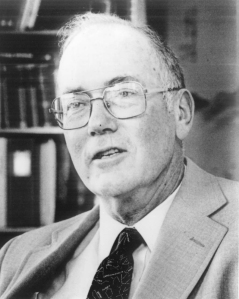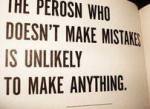Last night I went to see Emmanuel Jal performing at the Forge arts centre in Camden. As gigs go, it was an exciting performance in a space which at times seemed too small to contain all the energy that was raring to burst out. Support came from members of his backing band who have their own solo careers: vocalists Tanika Charles and Clinton ‘Roachie’ Outten, and Afrobeats artist and multi-instrumentalist Silvastone. Emmanuel’s own set consisted mostly of songs from his latest album, the Key.

I’ve known Emmanuel for quite some time; over 10 years, now I think of it. I was one of the first journalists here to help relay the heartbreaking yet uplifting account of his escape from life as a child soldier to the world (that would be in 2003, if my memory serves me well). I was at Westminster with my notebook and camera when he and several other Sudanese people and their supporters staged a ‘die-in’ as a protest against the war in Sudan. We bumped into each other again the first time he played Greenbelt, and at an African music festival in Trafalgar Square. But all that was a long time ago, so it was good to catch up with him again.
Before Emmanuel took to the stage, he and I retreated to a nearby restaurant where I threw a few questions at him…

So much has happened in your life since we last met up. Give us a rundown, please…
Yes, a lot of things have happened. The We Want Peace movement is still going, where I go to schools and share my experiences. I believe that when you share your experiences and stories, it’s like putting on a spotlight in a dark place. When you put a light on in a dark place, evil will perform less.
I’m also still doing charity work with Gua Africa – the charity that I founded, helping families and individuals overcome the effects of war and poverty. I’ve just been in a film called the Good Lie with Reese Witherspoon. And I now have five albums out; the latest one is called the Key.
The Key isn’t just an album. What else is there to the concept?
It all came about when I met Paul Lindley in South Africa. Paul’s the founder of Ella’s Kitchen, a company that makes baby food here in the UK. We started talking about food – but from that I came to realise that Paul cared about children, as I do. And so he suggested an idea: Why couldn’t we make an album about children’s rights? And so we started brainstorming ideas.
Later on, these ideas gave birth to an enterprise. And that was when we formed The Key is E. It’s going to fund small business owners who have a direct impact on children’s lives. It’s going to focus mostly on Africa. The Key is E will be a platform to connect people who want to invest in Africa; connecting the diaspora to local people with ideas, or any other investors who want to go to Africa.
I’ve been doing tours where all the proceeds from the tickets at the door go to the enterprise. All the proceeds from the album go to it too. As for the album, we had lots of people involved. Nile Rodgers did a song called ‘My Power’. Nelly Furtado’s on two songs, and then we have two songs from the album featured on a film soundtrack.

 You’ve also started your own record label. What acts have you signed so far?
You’ve also started your own record label. What acts have you signed so far?
The label’s called Gatwich Records and it’s based in Canada. In terms of artists, at the moment there’s just me and my sister Nyaruach. But we’re looking to sign others. What we’re going to try to do is focus more on management. It’s not easy to make money from CD sales, so we’re trying to bring 360 deals in.
How did you find the writing process when you did your autobiography War Child?
It was a difficult thing to come out and tell the story. One of the most difficult things is, when you tell the story, who’s going to believe you? And because there’s a political side to it, you could get attacked. People will accuse you of lying.
The main questions are: who’s going to believe you, why are you doing it, what’s going to happen and will it create change? Those four Ws all have to be answered first. After I’d answered them, I just took the risk and wrote the book. But yes – telling it personally was difficult.
What’s this new film you’re in, and how are you finding the acting experience now that you have two films under your belt?
The Good Lie is about the ‘lost boys’ of South Sudan who escaped, and how they survived. Some became child soldiers, and they finally made their way to the US. Reese Witherspoon’s in it, and I brought the musical and cultural aspect to it, together with other South Sudanese, we helped make it accurate. The writers did a fantastic job; the director was awesome. It’s an amazing project – and it was fantastic to have Reese Witherspoon humble herself and help put the message out.
The hardest acting experience for me was Africa United – the first film role I was ever given. It was hard because I was being told to act! But then, the role was that of a child soldier, so that made it easy. I was a soldier before, so I acted as if I was going to kill. Sometimes soldiers act when they’re threatening you.
One of your collaborators on this new album is Nile Rodgers. I’ve been a Chic fan for, like, forever; how did you get to link up with him?
When you’re walking your path and you keep on doing your work positively, you’ll meet a lot of positive people on the way. And that’s how I met Nile. I met him at a UN concert. From there, we kept in touch. He invited me to a We Are Family Foundation event; I supported him; he liked what I was doing – and so we ended up doing a song together.
Nile’s an amazing person. He’s like a mentor to many people. Whenever you meet Nile, he will always give you the support you need.
How are things in South Sudan at the moment?
Right now, South Sudan is in a difficult situation. I feel betrayed when I think about the situation, where the people we trusted – the people who fought for our freedom – pocketed our freedom. The war that’s happening in South Sudan now started as a disagreement between people in the same party. The president was questioned by some of the other party members, who said “we have corruption going on; we need to have accountability towards the people we’re leading and towards our party”. They said they needed to be transparent and put institutions in place that would protect all of us. Some of them also said they would like to be able to run for the presidency. That made the president angry – and he fired the entire cabinet.
When that happened, people started to speak out, and the president started putting them under house arrest. He broke the constitution and dissolved the electoral system. His biggest threat was his vice-president, so what he did was arm members of his own ethnic group within the city and made them the presidential guard. That was what led to the conflict. Later, he accused the cabinet that he’d fired of trying to stage a coup. His plan was to silence any opposition. When that failed, those who escaped discovered later that their families had been killed. A lot of young people got angry when this happened, and they thought it was a tribal war. Some of them attacked the government’s barracks; some carried out revenge attacks on people from the other tribes.
According to community research, about 20,000 Nuer people were killed in Juba. We’re talking innocent civilians here – women and children in their homes. My house was burnt down. Sixty people from my family got killed – including my brother and stepmother.
What saved the situation was the widow of Dr John Garang. She spoke on the radio and said, “Look – what happened in Juba is not good.” Her speech on the radio was what prevented the conflict from becoming a tribal one. I give her credit, because without her intervention, genocide could well have happened. A lot of innocent people would have died.
The situation is terrible. We have approximately two million displaced people; thousands killed… Our country spent a billion dollars on arms, while the UN is looking for 1.3 billion to fund the refugees that need food. But now I think both sides are beginning to come to their senses. I hope they find a peaceful solution, and that all those involved in these killings are held accountable.

















